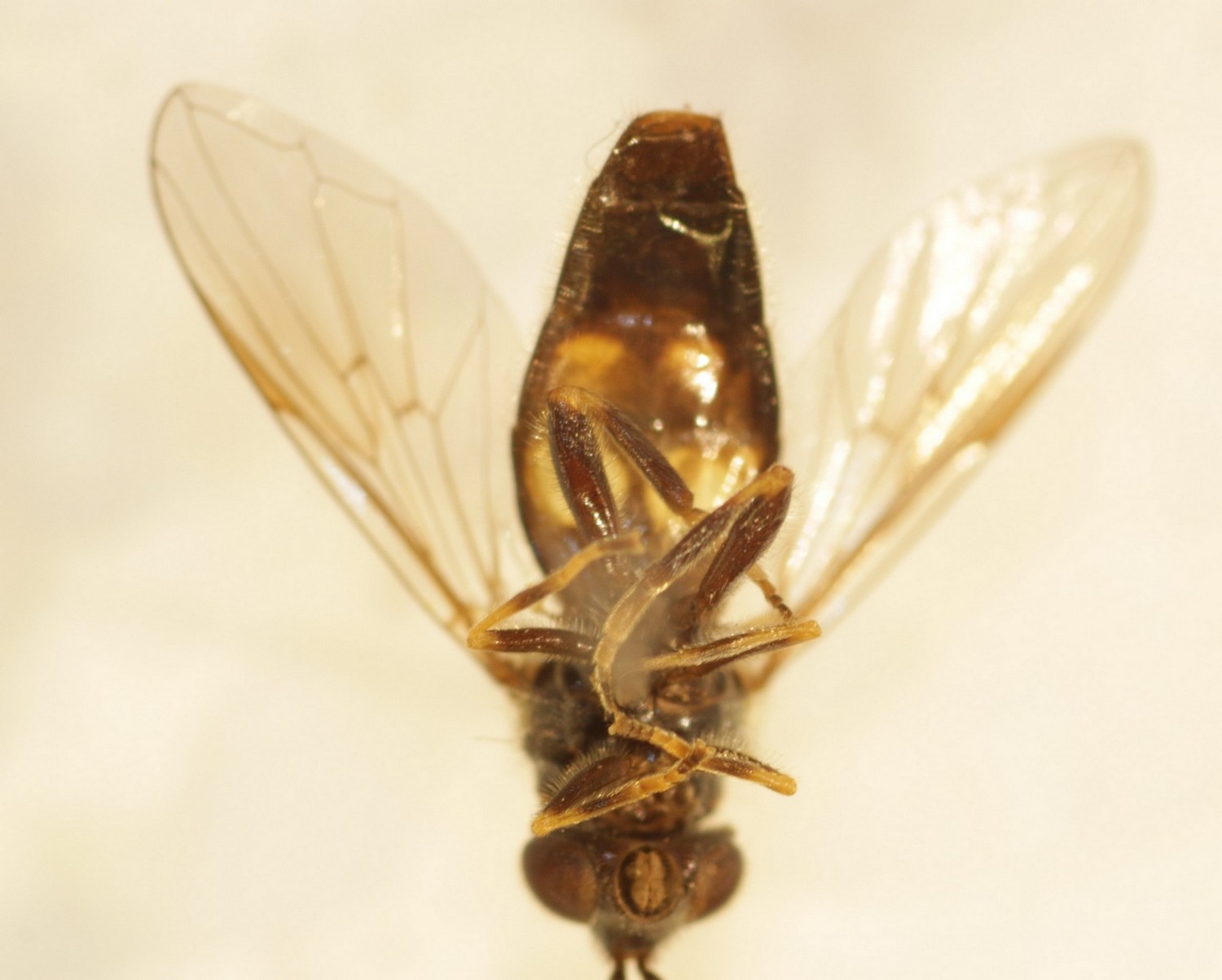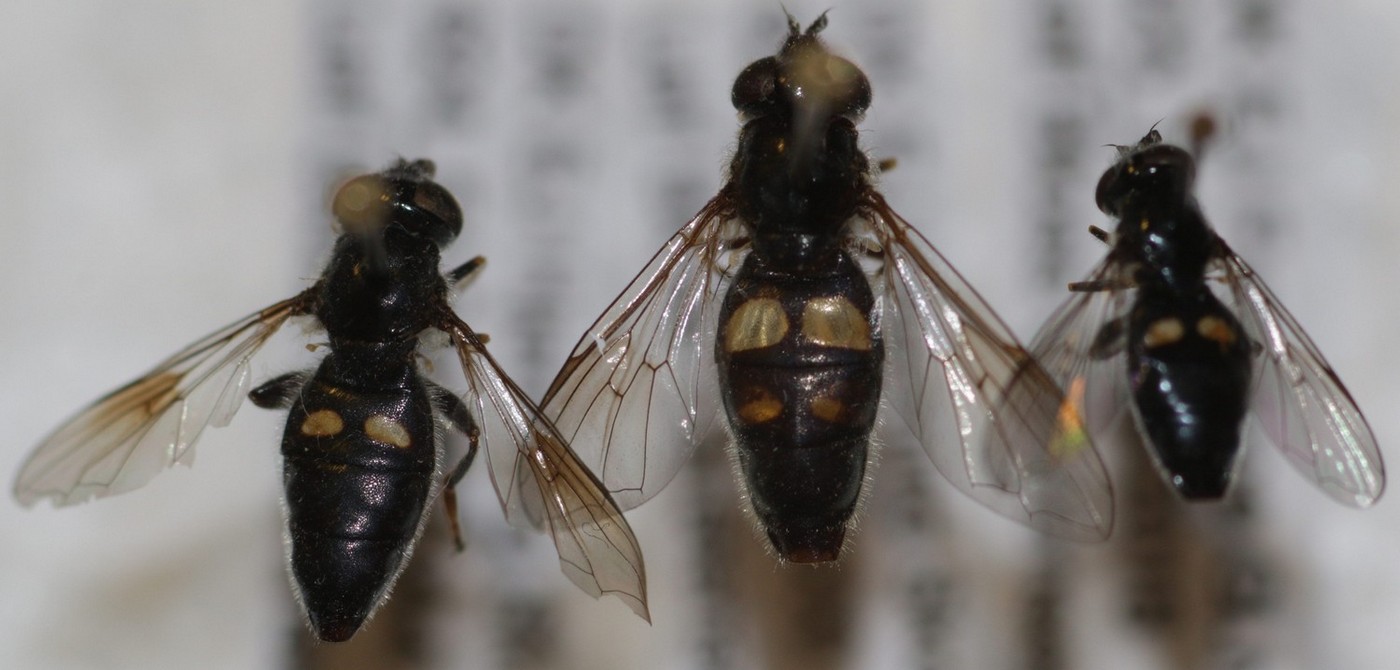Diptera.info :: Family forums :: Syrphidae
|
Pipiza noctiluca with two pairs of spots?
|
|
| Leif Bloss Carstensen |
Posted on 04-02-2019 12:12
|
|
Member Location: Denmark Posts: 31 Joined: 15.09.14 |
Hi, I am trying to identify my Pipiza specimens based on the key in Vujic et al. 2013: Systematics of Pipizini and taxonomy of European Pipiza Fallen molecular and morphological evidence (Diptera, Syrphidae). This female was collected close to Bjerringbro, in the central part of Jutland, Denmark. It looks like a P. fasciata (previously fenestrata), a species not found in Denmark. It corresponds to the descriptions of fenestrata in British Hoverflies by Stubbs and Falk, Nationalnyckeln and that of P. fasciata in the above-mentioned article. I do think, however, that it is a P. noctiluca with "too many" spots. Quite large parts of the basal cells and the alula are without microtrichia. I hope you can help me identify this female. Pipiza is really an interesting and annoyingly difficult family.  Best regards Leif BC Leif Bloss Carstensen attached the following image:  [185.4Kb] Edited by Leif Bloss Carstensen on 05-02-2019 13:12 |
|
|
|
| Robert Zoralski |
Posted on 08-02-2019 00:46
|
|
Member Location: Gdansk, Poland Posts: 173 Joined: 20.08.06 |
Indeed, that's very variable genus.  Please check for P. luteitarsis. I believe yours is not P. noctiluca due wings should be more cloudy and abdomen more oval + I've personally never seen a specimen of P. fasciata nor P. fenestrata in real ( would personally exclude those)... |
| Leif Bloss Carstensen |
Posted on 08-02-2019 19:35
|
|
Member Location: Denmark Posts: 31 Joined: 15.09.14 |
Thank you for your reply, Robert. I also considered P. luteitarsis, but the hind femurs are swollen and have a ridge. See photo that also show feet. It may remain unidentified. Br Leif Leif Bloss Carstensen attached the following image:  [164.48Kb] |
|
|
|
| Leif Bloss Carstensen |
Posted on 08-02-2019 19:48
|
|
Member Location: Denmark Posts: 31 Joined: 15.09.14 |
The female flanked by P. notata and P. noctiluca. I don't it is a P.noctiluca.
Leif Bloss Carstensen attached the following image:  [136.75Kb] Edited by Leif Bloss Carstensen on 08-02-2019 19:53 |
|
|
|
| Jump to Forum: |













